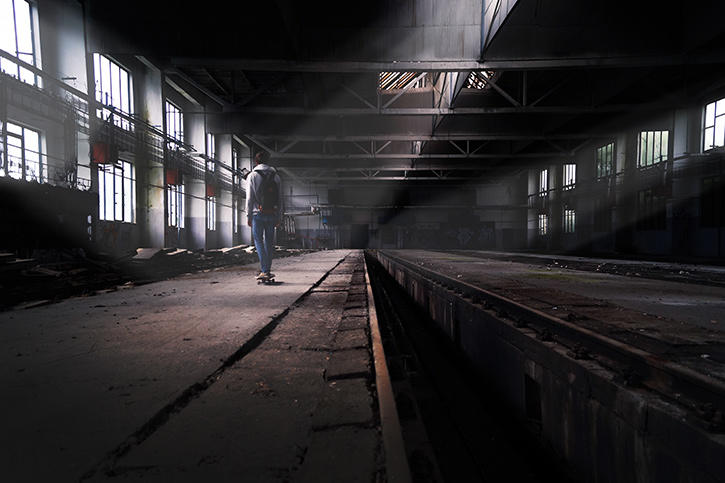 (The image above is courtesy Pexels.com)
(The image above is courtesy Pexels.com)
Below is a piece I wrote for The Curator of Forgotten Things. The story is still at the "throw everything at the wall and see what sticks" stage, and this monologue probably will not make it, but it helps me understand the world that protagonist Lucy Shao is living in...
=+=+=
Dad lost his job when I started high school.
That sounds more traumatic than it was, which shows you how well society handled the transition, if you think about it.
He was laid off because his profession had been automated. I'm surprised, now, that it came as a surprise: everybody cheered the launch of self-driving cars, and they did make our streets safer, our transportation more convenient, and our insurance premiums negligible. But people didn't realize that self-driving cars meant self-driving trucks, and the economic case for them was beyond compelling.
Robot drivers don't get fatigued. They don't get distracted. They don't drive impaired. The Luddites who fought against the automation of the industry (and I'm not insulting them; they called themselves that, with a sense of historical callback that I appreciated, but ironically no sense of what actually happened to the first Luddites in history) didn't stand a chance.
Fortunately, somebody in management or in the government was wise enough to soften the blow. Dad was laid off, but he got a generous severance package. And then his pension kicked in, ten years early and higher than expected. And Mom was a teacher, so she was bringing in a decent income of her own, and we had enough to live comfortably, with a roof over our heads.
So, while Dad may have been upset at no longer being a trucker anymore, he told me he was happy. He now had time to work in his workshop, and learn to use the tools he'd been gathering over the years. He built Mom a garden shed. The second time, it even managed to stay up.
By the time I'd graduated high school, they had stopped reporting unemployment statistics. Many economists were questioning their accuracy, anyway. A quirk of reporting on unemployment is that it doesn't count the number of people who aren't working. Instead -- and this is important -- they only count those out of work who are actively looking for work. If you've given up, because the industry you worked at has gone to the robots, or because you haven't worked at all for the past two years, or because there isn't a position anywhere that you qualify for, and they're filling up anyway, then you slip out of the system. The numbers don't count you. In the wrong hands, you can be forgotten.
Fortunately, somebody remembered. The year I graduated high school was the year the government brought in the National Minimum Income. Suddenly, every citizen and landed immigrant received a cheque from their government equivalent to working a full time job at minimum wage -- which had previously been set at $15/hour. And they abolished university tuition.
So, at the age of eighteen, I was suddenly being paid $30,000 per year to... just live.
It wasn't an extravagant living, but it was enough to get my own place and put food on the table, with or without my parents' support. Also, everything was cheap, another benefit of automation.
The tensions just seemed to end after that. The restaurants filled up. So did the coffee shops,. The libraries did brisk business. Governments were re-elected. Wars faded. We had what we needed, and all we had to do was sit there.
I didn't like just sitting there. I never have.
But by now there weren't many jobs available. The service industry was all but automated. Pubs served beer by ATM. Even the baristas were mechanical. A handful of places charged a premium rate for human service, but the people who worked those jobs clung to them. There was hardly ever an opening.
So, since I didn't want to just sit around, and since a University education was free, I went to University. I found my passions. I figured out what I wanted to do with my life.
And I could have done it. And maybe I should have done it after the job I found ended up being sitting behind a desk at an empty warehouse. Maybe I should have quit and pretended to earn an income from my own business.
I didn't quit for a few reasons. For one thing, $30,000 a year isn't poverty but it's not far above it. The extra paycheque helped me build up a cushion, and I love cushions, both financial and memory-foam.
And as I looked out at a life without work, I couldn't see myself doing it. I am Lucy Shao, a graduate with a bachelor's degree in history. I work for a museum supply company, even if their warehouses are empty. I hope to work at a museum someday.
I don't need to work, but I want to work. Because I am Lucy Shao, and everything I told you about my career goals is a part of my name. It's a part of me.
I couldn't give that up. Not yet.